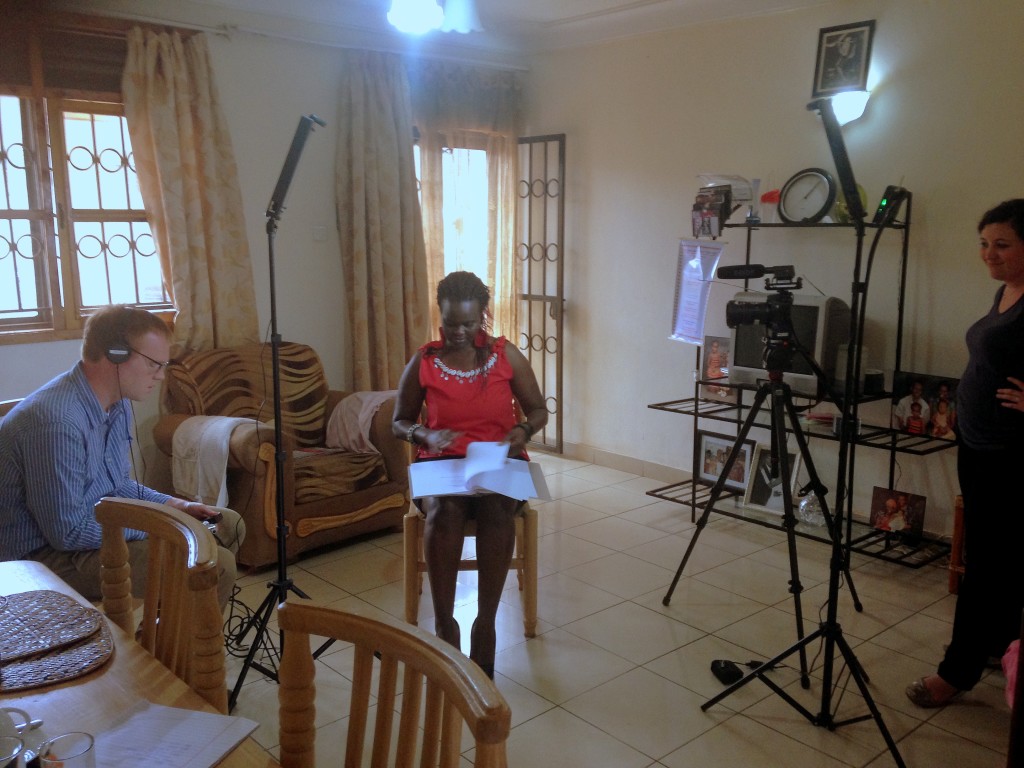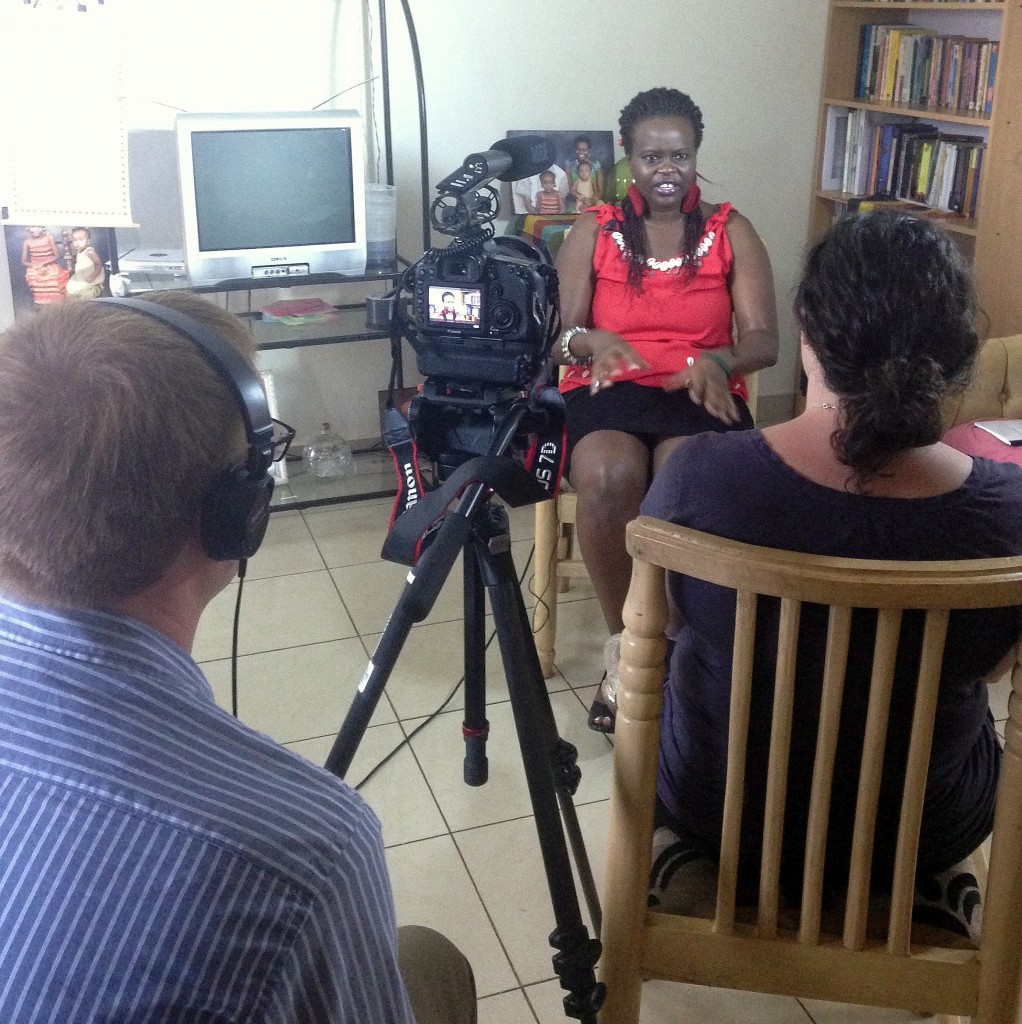Branding is the new editorial and blogging is the new story-telling. There are thin lines between vanity and humility amongst writers. As a poet who dabbles as a part-time traitor with a novel half-way done and a number of published short stories, I am here to write, me.
On May 22, PBS NewsHour visited my home and interviewed me for close to four hours about me. I talked, showed off my family, talked, sighed, yawned, read, watched the clock and was not even half-way done after it was all over.

When I received their email a few months back, my response was the usual one I give to international media that are interested in my work.
“Absolutely! Yes, I will be honoured.” I have a template.
When I asked my friends and family in the U.S who they are, they all told me they are huge. I then contacted my good friend Google for more information on them. It took me days to unravel anything of remote interest in the archives of my brain, publications, friends and non-friends wondering why they would travel to a country brimming with award-winning writers and pick me. It was time to get my Bev on.
I have only been short-listed for Poetry Foundation Ghana and long-listed for Short Story Day Africa, so it’s certainly not my writing. It must be the Poetry Award that I have been coordinating over the past six years with significant success. There have been numerous articles on the BN Poetry Award. Journalists who like or dislike poetry, funders who understand and don’t understand poetry and the sea of poets from the continent and beyond that have shown great interest in the award. I could talk about it forever to PBS. I decided that would be the niche of the interview. I would tell them how the first year in 2009, I moved around for three days on a boda boda to deliver invitations, how the Deputy Speaker of Parliament, now the Speaker, accepted the invitation as Guest of Honour, just a week to the event. I would tell them how this year 2014, after the award extended to Africa, from being an award targeting Ugandan women, there were more than 1,500 submissions. I would tell them how each of the Judges this year, are people I met just a year ago and who have become fast friends and literary mentors. I would tell them how I survived the Westgate terrorist attack in Nairobi in 2013 where I had gone with the winners of the BN Poetry Award.
I would not tell them the awkward stories about my life. How several women, men and organisations who are known publically in Uganda for their leadership and entrepreneurship have hired me for work, after which their disingenuousness causes them to flee without paying. I would not tell them how several of these have issued bounced cheques, refused to respond to emails, used my work without acknowledging and still they are called Uganda’s leading entrepreneurs and leaders. I would not tell them how many times, we have held BN Poetry Award ceremonies, even without resources but the event had to go on. I would not tell them of the misinterpretations of frenemies who still ask, What have the winners gained from the award? Even though the winners have attended the Storymoja Hay Festival, dined and reminisced with Sitawa Namwilie, Nii Parkes, Kwame Dawes, Teju Cole, Giles Foden, Dinaw Mengestu, Kofi Awoonor (RIP) and many more. They have been mentored by the best writers from the continent, received autographed copies of Half of A Yellow Sun by Chimamanda Adichie and have had their poetry reviewed by Dr. Susan Kiguli. The winners have received 500 US Dollars, 300 US Dollars and 200 US Dollars for first, second and third positions respectively, they will be published in Prairie Schooner Magazine and several anthologies, have participated in countless spoken word events, have travelled because of their BN Poetry Award win and well, does the word validation even have a price to it? No, I would not tell them about these frenemies.
PBS NewsHour, Victoria and Jason, with energy, purpose, smiles and lots of time and questions, came to my home on May 22, just after 10am. It was fun. They even caught my daughters scribbling on the wall and my husband at his laptop. That is a normal day in our house after all. I chose to wear shells because it was the closest I had to a traditional piece of clothing, which was clean.
Surprisingly, they did ask me about my writing and a few questions about my personal intentions when writing poems, especially At The Graveyard, Unjumping, Bujumbura and I Baptize you with my Child’s Blood. Unjumping, in particular, which is the title of my chapbook collection published in 2010, is a poem I thought nothing of until it manifested itself in peoples’ lives as a form of healing. It suggests creating clean slates in our lives, reversing the unconstructive and walking newer paths.
They were professional, kind and interested. I wanted to tell them that the 2007 Caine Prize winner Arac de Nyeko was in Kampala. It would have reflected badly though, since no journalist from here had interviewed Arac on her current work and no well-intentioned arts manager from Kampala had organised a reading for her.
I am grateful for the opportunity because somewhere in the back of my exhausted and befuddled mind, it means that I am doing something valuable by being me. I am grateful because the people in my life who have been good listeners of my dreams, supporters of my insane ideas, mentors, prayer-warriors and leaders, have a reason to go on allowing me, to be me.


[…] 5. Beverley Nambozo Nsenziyunva […]